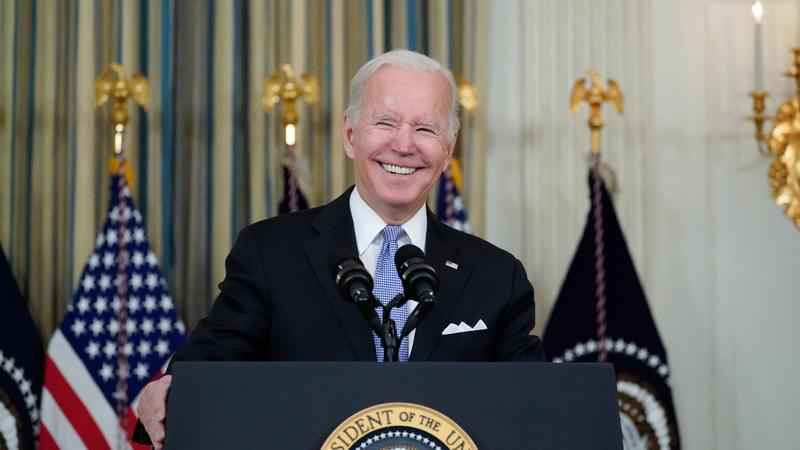What experts say $100 million in broadband funding will do for Minnesota
[anvplayer video=”5068687″ station=”998122″]
The new $1 trillion dollar infrastructure package — passed by Congress Friday night — invests billions in spending.
For Minnesota, there will be more than $5-billion for road, bridge, and public transit improvements.
There will also be tens of millions for broadband, which is expected to have a major impact on the state’s rural communities.
“It opens up a whole new world, really,” says Gary Wertish, the president of the Minnesota Farmers Union. “We have an aging population in rural communities, a shrinking population. This is one way we can bring that back.”
The package is expected to mean more broadband, with a broad reach.

President Joe Biden speaks about the bipartisan infrastructure bill in the State Dinning Room of the White House, Saturday, Nov. 6, 2021, in Washington.[Alex Brandon/Associated Press]
“This is like the WPA, the Works Progress Administration, way back in 1935,” says Christopher Gibbs, the president of ‘Rural Voices,’ a non-profit that networks farmers and community members. “We could even equate it with rural electrification. It’s that big a deal.”
Under the plan, Minnesota will receive a minimum of $100 million to help set up broadband coverage across the state. The bill would provide access to at least 83,000 Minnesotans who don’t have it.
Wertish, from Renville, says he works on his son’s 500-acre farm, raising corn and soybeans.
He hopes the plan will help the 14,000 members of the farmers union — while bolstering connectivity in rural areas like never before.
“You know the pandemic really showed us why we need this here,” Wertish says. "It’s not only the farmers, it’s the rural communities, it’s health care, it’s the rural schools. It’s a way for people to come back more into rural communities if they want to provide and open a business.”
A White House report found nearly 12% of Minnesotans live in areas with no broadband infrastructure capable of providing acceptable speeds.
The report also says a like number of Minnesota households have no internet connection at all — and that nearly 63% of Minnesotans live in areas with only one internet provider.
“We did something that’s long overdue, that long has been talked about in Washington,” President Joe Biden told reporters Saturday. “No parent should have to sit in the parking lot of a fast-food restaurant so their child can do their homework, because they have no internet connection."
Wertish says the broadband will help growers to use GPS to monitor their crops, and more easily order supplies on the internet.
"We can use it for planting our crops, can adjust your spray or planting and keep track of your acres,” he says. “You collect a lot of data that’s very important to you, but you’re also providing a lot of efficiencies.”
Experts say the high-speed broadband will connect large, spread-out rural school districts.
Even health care in small communities could benefit from telemedicine, Gibbs says.
"They have to depend on video medicine and getting those specialists to them, not everybody can have a specialist,” he explains. “The way you’d get that is the rural broadband."
The plan will also include an ‘affordability connectivity benefit,’ to help low-income families pay for internet access.
It’s unclear how soon the infrastructure funds will be rolled out. The president says he hopes to sign the bill into law ‘soon.’
Wertish hopes more broadband access could mean a new start for many.
"Whether they can work from home in rural communities or start their own business, be an entrepreneur — the doors open to a lot of these types of possibilities,” he says.